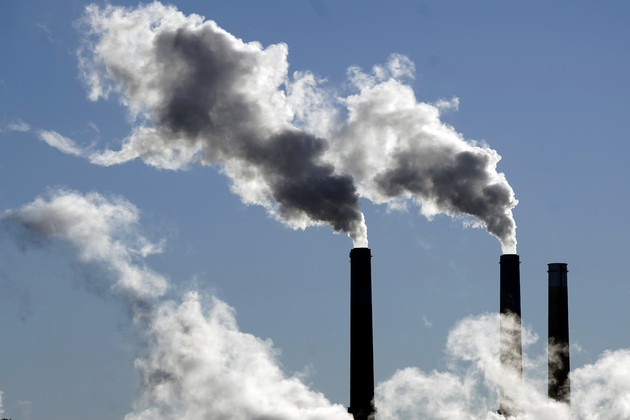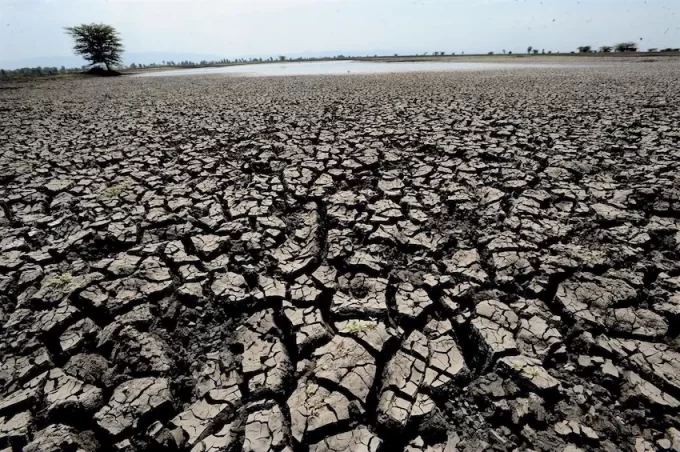Failure to invest the bare minimum needed to withstand projected climate damage could cost emerging markets such as Kenya hundreds of billions in climate damages and lost GDP growth this decade, according to a new study by Standard Chartered Bank.
The Adaptation Economy, which investigates the need for climate adaptation investment in 10 standard chartered footprint markets – including Kenya China, India, Bangladesh and Pakistan – reveals that without investing a minimum of $30 billion in adaptation by 2030, these markets could face projected damages and lost GDP growth of $377 billion: over 12 times that amount.
The projection assumes that the world succeeds in limiting temperature rises to 1.5°C, in line with the Paris Agreement. In a 3.5°C scenario the estimated minimum investment required more than doubles to USD 62 billion and potential losses escalate dramatically if the investment is not made.
Kenya could avoid costs of an estimated $ billion (Ksh2.5 trillion) by investing a minimum of $200 million(Ksh25 billion) in adaptation.
See Also >> Kenya’s Multi-Million Condoms Enterprise Gets a Squeeze
Examples of climate adaptation projects include the creation of coastal barrier protection solutions for areas vulnerable to flooding, the development of drought-resistant crops, the development of extreme climate resistant housing and early-warning systems against pending natural disasters.
India to benefit the most from adaptation investment
Among the 10 markets in the study, India is projected to benefit the most from adaptation investment. The market would require an estimated USD11billion to prevent climate damages and lost growth of USD135.5 billion in a 1.5°C warming scenario – equal to a thirteen-to-one return for the Indian economy of investment in climate adaptation.
The case for adaptation
Even if the world’s nations manage to achieve the goals of the Paris Agreement, measures to adapt to climate change must be pursued alongside the global decarbonisation agenda, with the banking sector having a critical role to play in unlocking finance.
| Market | Minimum investment required (1.5°C) (USD) |
Economic benefit (USD) |
| India | 10.6 billion | 135.5 billion |
| China | 8.1 billion | 111.9 billion |
| Indonesia | 4 billion | 39 billion |
| UAE | 2.7 billion | 31.5 billion |
| Nigeria | 1.5 billion | 19.9 billion |
| Bangladesh | 1.2 billion | 11.6 billion |
| Egypt | 900 million | 8.6 billion |
| Vietnam | 600 million | 8.9 billion |
| Pakistan | 600 million | 7.6 billion |
| Kenya | 200 million | 2.2 billion |
The $30 billion investment required for adaptation represents only slightly more than 0.1 per cent of combined annual GDP of the 10 markets in the study and much less than the estimated USD95 trillion emerging markets require to transition to net zero using mitigation measures, as outlined in Standard Chartered’s Just in Time report.
The Adaptation Economy also surveyed 150 bankers, investors and asset managers and found that, currently, just 0.4% of the capital held by respondents is allocated to adaptation in emerging markets where investment is needed most.
However, 59% of respondents plan to increase their adaptation investments over the next 12 months. And on average, adaptation financing is expected to rise from 0.8% of global assets in 2022 to 1.4% by 2030.

“This report makes it clear that irrespective of efforts to keep global warming as close as possible to the 1.5°C scenario we are going to have to incorporate climate-warming effects into our systems and adapt to its reality,” said Birju Sanghrajka, Head Corporate, Commercial and Institutional Banking Kenya and East Africa.
Kenya is making great strides in laying the foundations to manage climate risk, Sanghrajka said, but will need to adapt to climate change at a faster pace by building more resilient agriculture, industry and infrastructure.
“We must urgently recognise that adaptation is a shared necessity, and as our Adaptation Economy research so effectively highlights, inaction creates a shared burden of exponentially increasing cost,” he says. “We have a crucial role to play in directing capital towards adaptation and creating the proof points to demonstrate that investing in adaptation can be a commercially viable proposition for the private sector.”
Next Read >> Safaricom Set To Launch M-Pesa Services In Ethiopia












Leave a comment